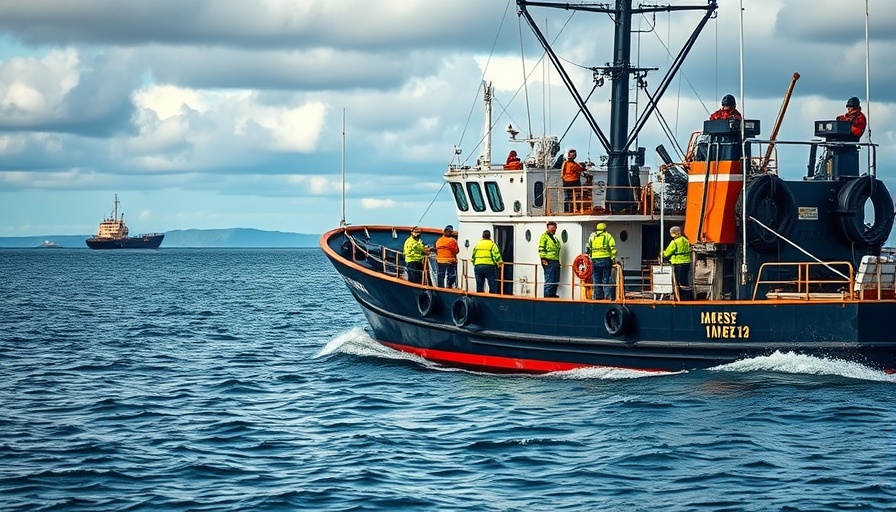
Harnessing the Power of Nature: The Synergy of Seaweed and Mussels
Recent research unveils a remarkable pairing in aquaculture: sugar kelp and blue mussels. Together, they can significantly improve water quality and restore marine biodiversity. This innovative approach, termed regenerative aquaculture, is gaining traction among sustainability advocates and is set to play a critical role in climate action.
A Regenerative Path to Aqua-Ecosystems
According to a study conducted by Tunely Environmental and aquaculture company Algapelago, integrating sugar kelp alongside blue mussels results in a more balanced aquatic environment. The mussels enhance water clarity through their natural filtering process, which enables kelp to thrive through better photosynthesis. Meanwhile, the kelp absorbs nutrients like nitrogen and phosphate, which can often lead to pollution. This mutual relationship is a brilliant example of how two species can not only exist together but thrive symbiotically.
Real-World Impact: The Blue Forest Project
The Blue Forest project off North Devon’s coast is pioneering this method. Currently expanding from 5 to 116 hectares, it aims to remove up to 23 tons of nitrogen and one ton of phosphate annually, contributing to significant carbon capture of up to 283 tons. Visual evidence of marine life returning to previously barren seabeds reflects a shifting narrative from degradation to rejuvenation.
Connecting to Hospitality: Why This Matters
For boutique hospitality professionals, the integration of sustainable practices like these can bolster their eco-conscious commitments. By supporting initiatives such as the Blue Forest project, small-scale hotel owners and eco-lodge operators can not only market their properties as environmentally friendly but also contribute to restoring the ecosystems that draw tourists. Every effort made toward sustainability solidifies a brand’s authenticity in a competitive market.
Future Trends: Regenerative Aquaculture in Hospitality
The model of regenerative aquaculture is rapidly becoming an inspiring trend. As more businesses recognize the value of sustainability, it’s critical for hospitality professionals to integrate practices of caring for aquatic environments. From sourcing seafood responsibly to investing in marine restoration projects, these initiatives can transform a brand’s narrative and enhance guest experiences.
Taking Action: How You Can Make a Difference
Incorporating sustainable practices can seem daunting, but every step counts. Boutique hotels might consider investigating partnerships with local aquaculture farms that utilize regenerative practices. Promoting these partnerships can not only attract eco-conscious travelers but contribute significantly to local environmental initiatives.
The Economic Value of Eco-Conscious Choices
Switching to sustainable practices often leads to a healthier bottom line. Improving brand reputation and attracting eco-aware travelers can ultimately translate into increased occupancy rates. As guests seek out sustainable lodgings, your commitment to supporting projects like the Blue Forest can set your hospitality business apart in a crowded market.
The ongoing journey towards sustainability continues to evolve with initiatives like these. By supporting regenerative aquaculture, you’re not just investing in your own business; you’re becoming part of a larger movement towards a healthier planet. We can take decisive steps in the right direction, and it begins with awareness and action.
Join the Sustainable Movement! Connect with local aquaculture projects, advocate for responsible sourcing, and embrace practices that align with your sustainability goals.
 Add Row
Add Row  Add
Add 




 Add Row
Add Row  Add
Add 

Write A Comment